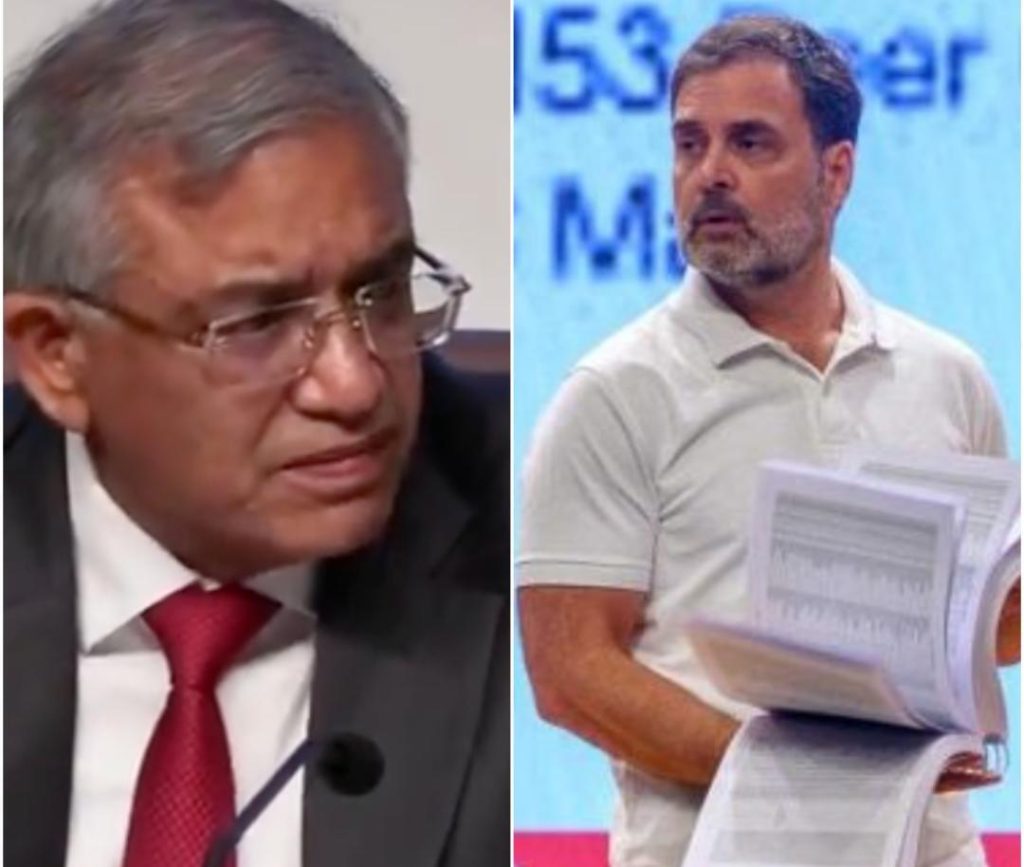
Vote Chori Phrase an Insult; Should We Share CCTV Footage of Mothers & Sisters Voting?: EC
The recent elections in India have been marked by controversy and allegations of electoral irregularities. Amidst the heated political debates, a phrase has gained widespread attention: “Vote Chori” (Vote Theft). Congress leader Rahul Gandhi has been using this term to claim that elections are rigged, and the opposition parties have been accusing the ruling party of manipulating the electoral process. However, the Chief Election Commissioner (CEC), Gyanesh Kumar, has strongly criticized the usage of this phrase, calling it an insult to the Constitution.
In a recent statement, the CEC emphasized that the Election Commission (EC) takes all necessary measures to ensure free and fair elections, and the “Vote Chori” phrase is a deliberate attempt to undermine the democratic process. Kumar also expressed concerns about the privacy of voters, particularly women, and questioned whether it is necessary to share CCTV footage from polling booths.
The “Vote Chori” phrase has sparked a heated debate in the country, with some demanding the release of surveillance footage from polling booths to ensure transparency and accountability. However, the EC has maintained that sharing such footage could compromise the privacy of voters, including women and children.
The issue at hand is a complex one, involving the delicate balance between ensuring transparency and respecting the privacy of voters. On one hand, releasing CCTV footage could provide evidence of electoral irregularities and help to build trust in the electoral process. On the other hand, sharing such footage could lead to the invasion of privacy, particularly for vulnerable segments of society, such as women and children.
The EC’s concerns about voter privacy are valid, considering the sensitive nature of the information collected during the electoral process. Voters’ personal details, including their addresses, identification documents, and biometric data, are collected and stored by the EC. The release of CCTV footage could potentially compromise this sensitive information, leading to privacy breaches and security threats.
Moreover, the EC has a responsibility to protect the privacy of voters, particularly women, who are often vulnerable to harassment and intimidation. The EC’s guidelines on election campaigning emphasize the importance of maintaining a safe and respectful environment for voters, and releasing CCTV footage could undermine these efforts.
In response to demands for releasing CCTV footage, the CEC asked a rhetorical question: “Should the Election Commission share the CCTV videos of any voter, including their mothers, daughters-in-law?” This question highlights the gravity of the situation and the need to prioritize voter privacy.
The “Vote Chori” phrase and the demand for releasing CCTV footage are part of a larger political narrative, with both sides accusing each other of electoral malpractices. While the EC has taken measures to ensure transparency and accountability, including the use of Electronic Voting Machines (EVMs) and Voter-Verified Paper Audit Trails (VVPATs), the controversy surrounding the phrase “Vote Chori” has raised concerns about the integrity of the electoral process.
In conclusion, the “Vote Chori” phrase is an insult to the Constitution and the democratic process. The EC’s concerns about voter privacy are valid, and releasing CCTV footage could compromise the sensitive information collected during the electoral process. Instead of demanding the release of surveillance footage, political parties and citizens should focus on promoting a culture of respect for the democratic process and the privacy of voters.






